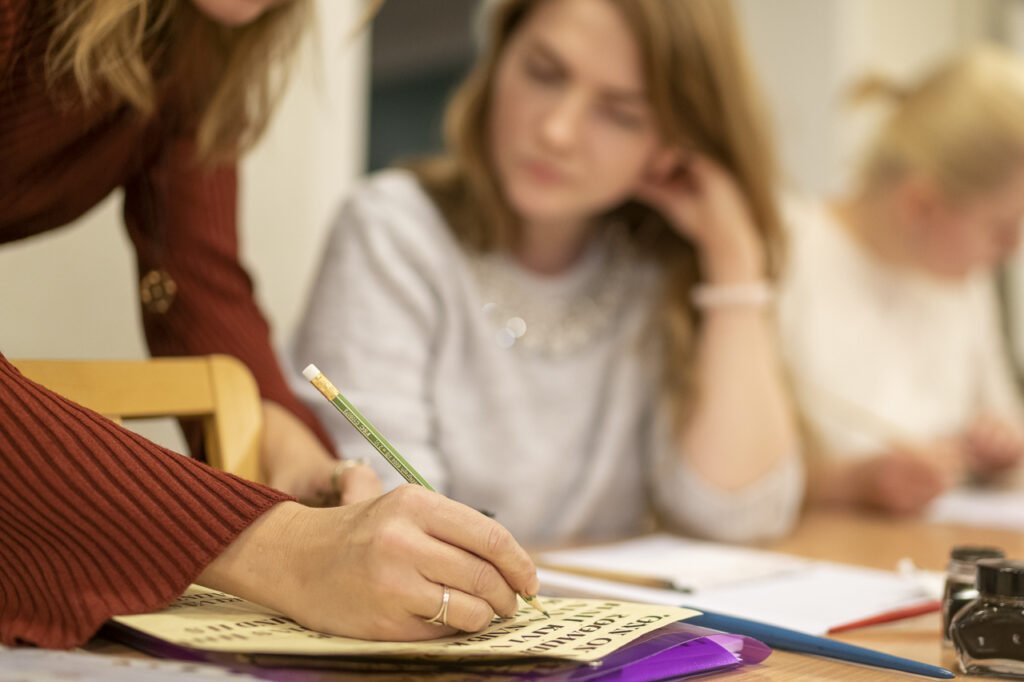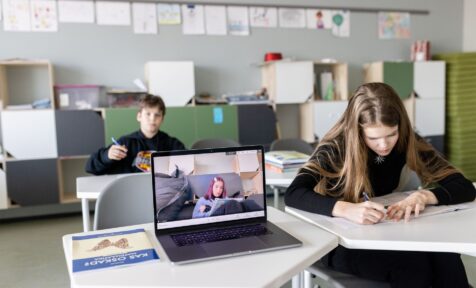Last October saw the launch in Estonia of the ‘Farm-to-School’ project, which in a nutshell is about offering school kids meals made with ingredients sourced locally. The brainchild of the Nordic Council of Ministers (NCM), the project aims to improve kids’ health and promote small producers.
Launched simultaneously in Estonia, Latvia and Lithuania, the project kicked off with an event explaining how to build up cooperation between schools and small producers so that school lunches are made with locally sourced ingredients. After the project had only been running for a month, ‘Farm-to-School’ project manager and Sustainable Gastro founder Jennifer Avci says it has already proved a success in Estonia. “Take Tartu and Võru counties, where some of the school lunches being offered to kids have already gone organic,” she says. “That’s a good starting point for the vision behind the whole project, to take it to a level where the government can devise support measures for it for local governments.”
Võru County’s success story serves as an inspiration to others
Võru County Development Centre adviser Aivar Nigol says 19 of the 45 educational institutions in the county have been awarded an organic label, with at least 20% of the ingredients used in their school lunches being organic. “As early as 18 September 2020 the local governments in our county signed up to an agreement with the Development Centre and an NGO called the Setomaa Union to make wider use of local, healthy, organic food and ingredients in publicly financed catering,” he explains. “For the most part, that means more use of organic ingredients in the lunches being offered in schools and kindergartens.”
Sven Tobreluts, the director of the Association of Municipalities of Tartu County, says the association is at a particularly busy point in launching the project as it is mapping which small producers in the county are capable of providing ingredients for schools and kindergartens. A questionnaire for schools, parents and producers is also in the works. The project is hoped to be implemented in schools themselves next year.
An added bonus, Tobreluts points out, is that the short supply chain emits less CO2, as there is no need to transport the food from Poland or the other Baltic States. Moreover, it helps to create jobs locally.
Bolstering kids’ mental health the organic way
Tobreluts says that the most important target the project has set itself is to improve kids’ mental and physical health alike. “Organic food plays a big part in bolstering mental health and overall welfare among kids,” he explains. “That’s why schools and kindergartens are so interested in getting involved in the project. Kids who have a balanced and varied diet are healthier and generally more active, which is the basis of everything, really.”
Tobreluts adds that there are also plans to establish school gardens in which the kids themselves grow and tend to crops.
Tools and tips for school cooks
Nigol adds that the Setomaa Union has so far run three cooperation projects, the first two of which aimed to raise awareness of healthy food choices, the advantages of organic production, its impact on the environment and its benefits to human health. School and kindergarten cooks were given practical tools and tips (including suggested menus) to boost the amount of organic produce they use.
The third project focussed on developing a functioning cooperation network and joint approach between local producers and local governments. “It aimed to ensure that more organic ingredients are used in catering in schools and kindergartens in Võru County,” Nigol explains.
Following the lead of a school in Copenhagen
The team behind the ‘Organic? Fantastic!’ project joined representatives of the Võru County Development Centre and of every municipality in the county on a trip to Denmark and Sweden to look into how catering is organised there and how organic produce is used in schools and kindergartens in the two countries. “They went to a school in Copenhagen where 97% of the ingredients used in the school lunches were organic, most of which were grown by local companies, which is to say by producers within a 150 km radius,” Nigol explains.
A follow-up visit supported by the Nordic Council of Ministers’ programme is hoped to take place in spring 2023 to promote the Danish and Swedish experience to key figures from Võru County.
Swedish success stories
Avci says that although there are no programmes at the national level in the Nordic countries, there are some local governments in the region that have been running ‘farm-to-school’ projects for some time.
Mark municipality in Sweden, for example, offers school students and kindergarten pupils more than 6000 school lunches every day. In Backlund’s view, there is great potential here to use food as part of education on sustainable development. “A few years ago, when the municipality renewed its procurement contracts for, among other things, beef and pork, it was written into the procurement terms that the caterers and school kids should be able to visit the supplier’s farm if they wanted to, in order to see how things there are run,” she explains. “So they did, and in turn, the farmers went to give talks to the kids two or three times a year on the ingredients they produce.”
The next step: turning canteens into restaurants
In describing the challenges that are being tackled, both Nigol and Tobreluts mention a pilot project which is aiming to turn school canteens into restaurants. “We want to get students involved in putting menus together and to work with them on making vegetables more attractive to kids,” Tobreluts explains. In principle, transforming canteens into restaurants means eliminating food waste: the kids themselves get to decide what and how much they put on their plates.
There are also plans to invite local producers into schools to bring their wares to a new market. “By allowing them to sell their apples and their pears and, who knows, perhaps even their turnips to the kids, we want to bring both sides closer together,” Tobreluts explains.
He hopes that the majority of educational institutions in Tartu County will have joined the programme by 2024, when Tartu itself and Southern Estonia as a whole takes on the mantle of European Capital of Culture. “Sustainable management plays just as important a role in that programme as well!” he smiles.
The Estonian office of the NCM has been promoting the New Nordic Food movement and appreciation for local produce since 2007. The BSR Food Coalition of the ‘Farm-to-School’ project is being co-financed as part of the European Union’s ‘Interreg Baltic Sea Region programme’.
The full version of the article was published first on the webpage of Nordic Council of Ministers'office Estonia.







